Sairat: Why a doomed love story has become India's sleeper hit
- Published
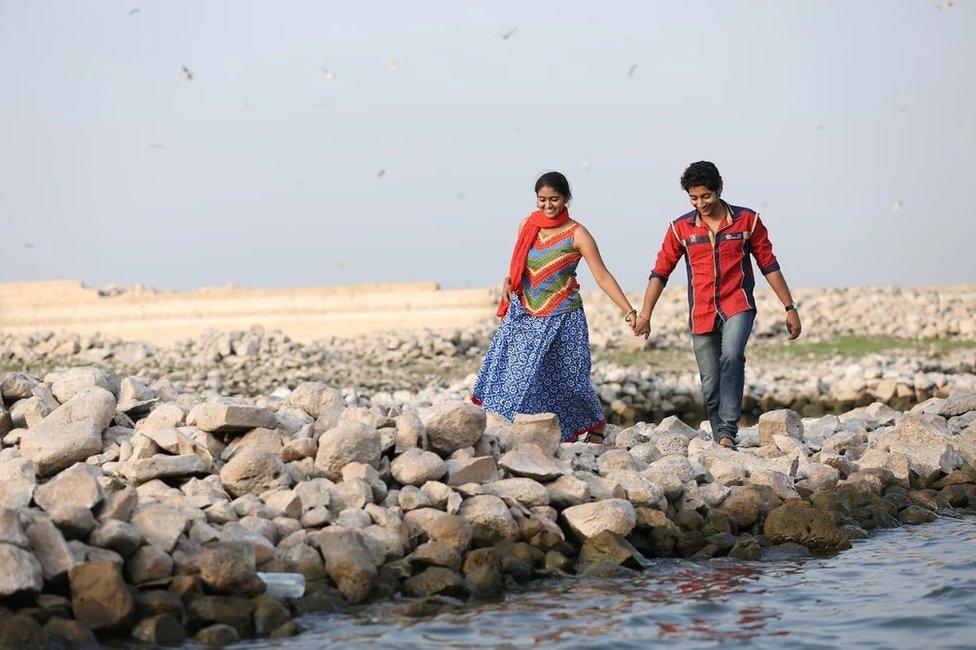
The film upends popular Bollywood stereotypes of love and gender
In movie-mad India, stories of young love struggling to find happiness despite harsh social rules are still box office gold.
This is because couples are breaking what writer Arundhati Roy, in her Booker prize-winning novel, The God of Small Things, described as "Love Laws" that "lay down who should be loved … And how … And how much".
Now a low-budget Marathi-language regional film Sairat, external (Wild) on the often cruel - and unsettling - consequences of falling in love in India has become the biggest sleeper hit of the year.
Sairat is avowedly anti-Bollywood: it is made by a Dalit (formerly untouchable) filmmaker, on a shoe-string budget of $597,460 (£414,940) and has a cast of newcomers, including two unknown amateur debutants, in the lead.
The film also upends popular Bollywood stereotypes of love and gender: in Sairat, an upper-caste girl falls in love with a lower-caste boy; and the assertive girl takes the lead in the relationship and there is no happy ending.
'Sairat phenomenon'
This has not stopped Sairat from becoming the highest-grossing film in the history of Marathi cinema.
Some 450 cinemas across the western state of Maharashtra have been packed to the rafters since the film released in April. Extra midnight and early morning shows have been added to cope with the crowds at single-screen theatres in small towns and villages.
People have been flocking to watch it in limited, subtitled release in the main cities. The film has earned more than $12m already.
Critics are raving about what they call the "Sairat phenomenon". The film received a standing ovation, external at the Berlin international film festival, where it was India's official entry.
"The warm reception that the film received from the international audience at the festival felt encouraging and special," director Nagraj Manjule, 38, told the BBC.
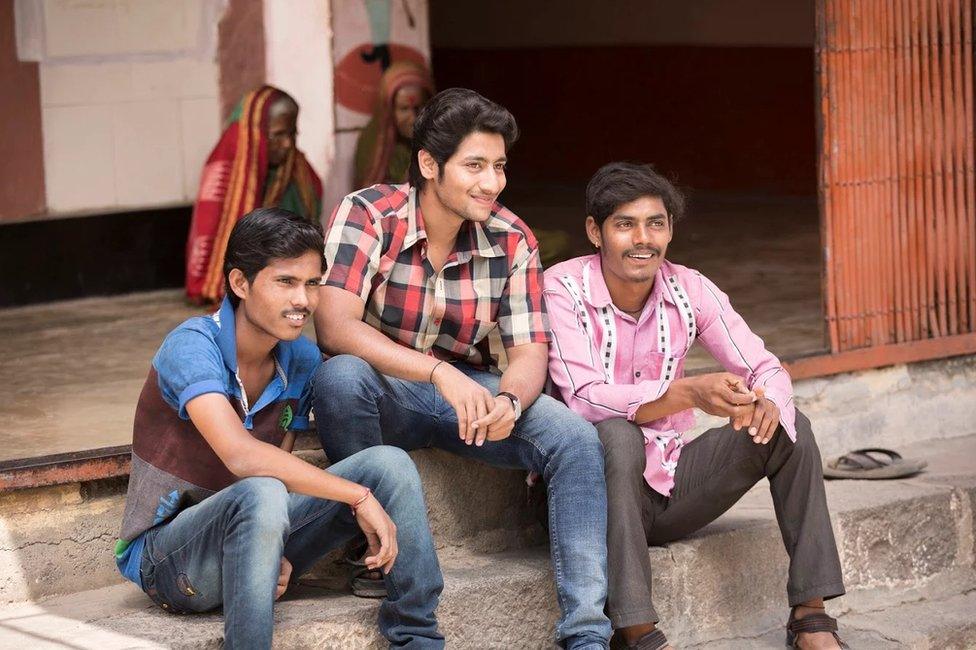
Sairat has a cast of newcomers
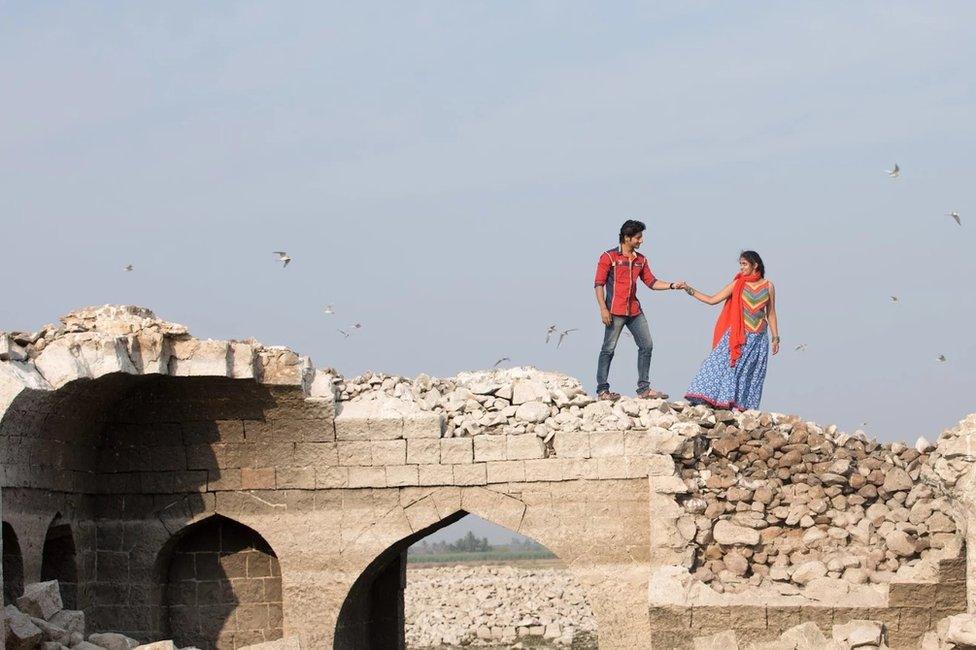
The low budget film has become the highest-grossing movie in the history of Marathi cinema
Sairat's heroine is Archana or Archi Patil, a plucky college-going student in a Maharashtra village; the hero is young Parshaya, her plucky college mate and the village cricket team's captain.
She is the spoilt daughter of the wealthy political kingpin in the village. She rides a motorbike to college and drives a tractor on her family's vast sugarcane farms.
He is the fisherman's son, living on the outskirts of the village that demarcates its Dalit ghetto from the upper-caste neighbourhood.
The village erupts in violence to keep the lovers apart and it follows them as they flee to the city to build their lives together. Then, tragedy strikes.
Acting real
Manjule chose not seasoned actors but students, with no acting background, to play the lead parts.
Heroine Rinku Rajguru, 14, who plans to study medicine, has become an idol for a strong female lead. The hero, Akash Thosar, 20, is a cricket-loving graduate student of history with plans to join the police service.
Rajguru had accompanied her mother to the film location at her village where director Manjule was working. A cursory introduction to the director had her soon auditioning for him and she was chosen for the lead role.
Thosar's photo made it from a friend to the filmmaker's brother on WhatsApp and he was also quickly made to go through an audition and picked for the part.
"I worked with them over months to make them understand the layers in their characters," says Manjule.
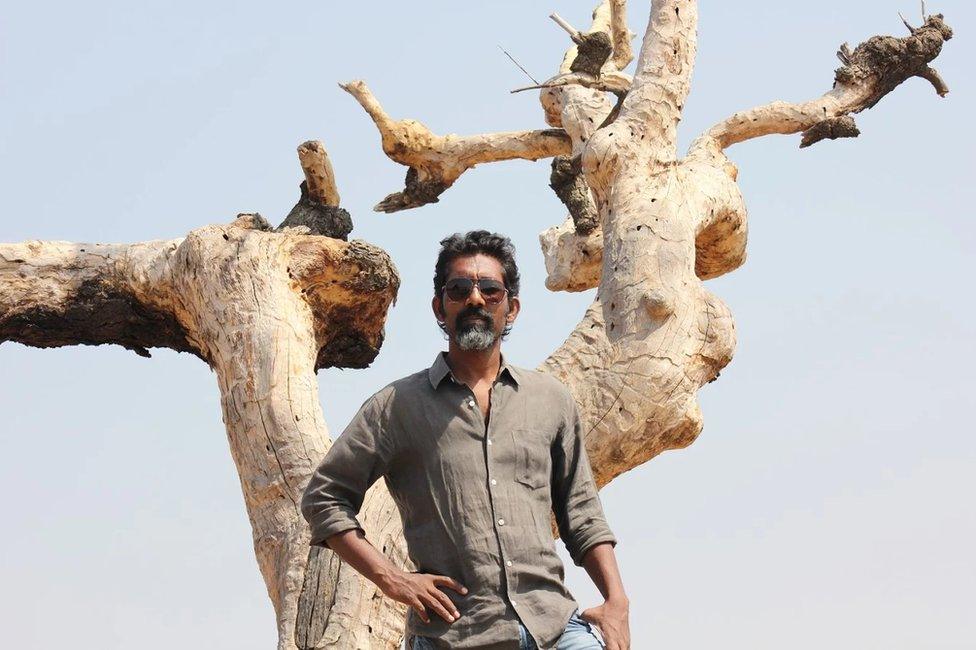
Nagraj Manjule says his film is a 'reaction' to Bollywood
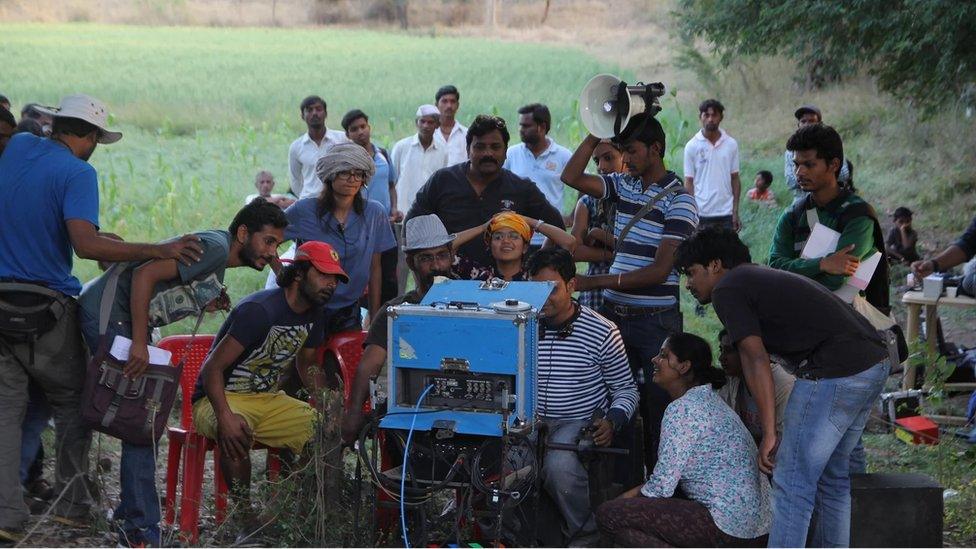
The film was shot in rural Maharashtra in western India
He says with avuncular pride that even in the emotional breakdown moments, the two "did not reach for glycerine and fake it".
Today, the two are stars who are "in hiding" with Manjule in Pune city to avoid being mobbed in public.
"We can't open the door casually, as a group of fans could launch themselves on the pair in frenzy. We often have groups of fans gathering outside the complex dancing to the popular songs from the film in celebration," says Manjule with a laugh.
'Reaction to Bollywood'
Rajguru sighs she can't go for a walk to have her favourite street food for fear of being mobbed.
Bollywood, with its over-the-top romances, has halted in its tracks, external in the very state which has a robust Marathi regional film industry that is low on cash but high on art.

The hero, Akash Thosar, 20, is a cricket-loving graduate student of history

Heroine Rinku Rajguru, 14, plans to study medicine
"Sairat is my reaction to Bollywood," says Manjule.
The Dostoyevsky-loving filmmaker wanted to go beyond Bollywood's "pretty heroines who await men to lead and settle them in domestic bliss".
"I am tired of a male order where women are props and wanted to give it a shake. The strong, independent women in the villages around me were inspirations for the female lead," he says.
Critics have lauded him for the portrayal of the strong female character.
Manjule speaks of the curse of caste that "denies equality among humans", his identity as a Dalit and "struggle to gain confidence and self-esteem".
"I realised that anger is not the answer to our struggles to confront caste, gender oppression and inequality," he says.
"My endeavour in this film is to use a familiar template of love, caste and violence and make a plea for compassion and human kindness."
Over two years, he worked on 50 drafts of the screenplay before "intuition took over as the muse" and he completed the script in 2014.
Sairat's overflowing success only proves that young India's struggle to love is real.
Sudha G Tilak is a Delhi-based independent journalist